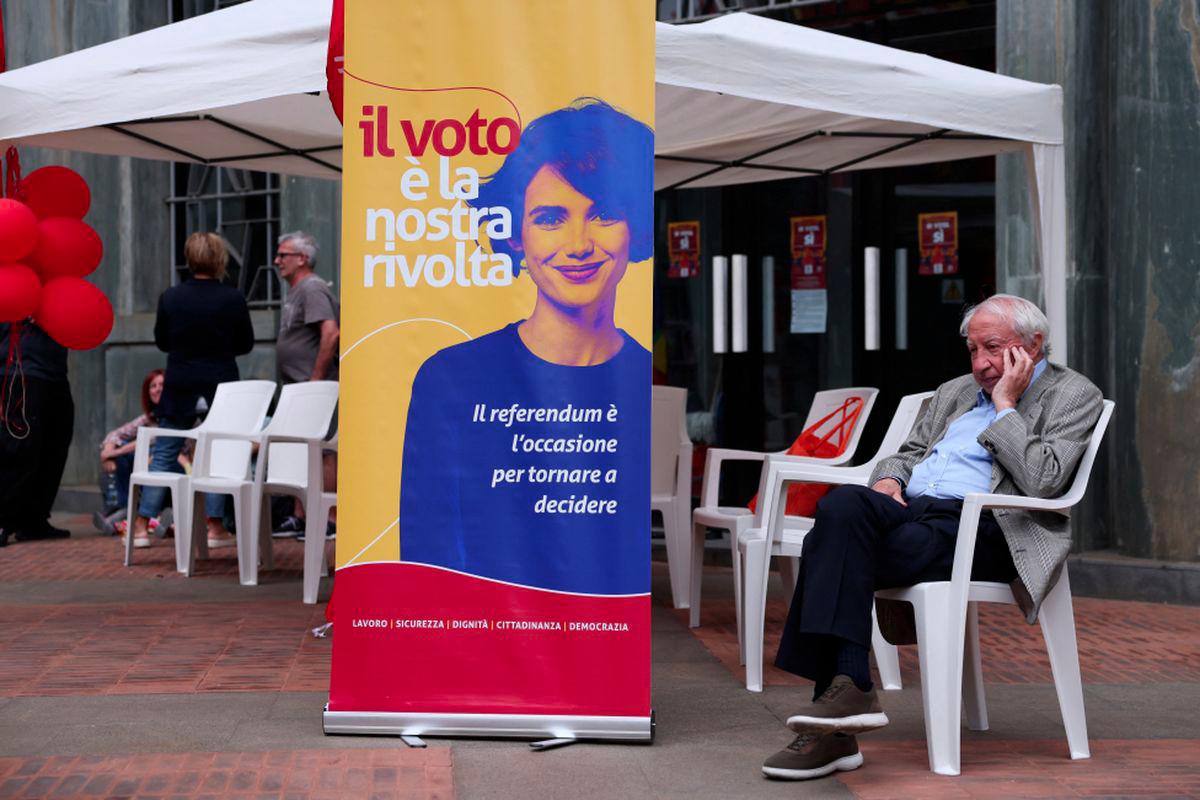ROME: Italians will start voting on Sunday in a two-day referendum on whether to ease citizenship laws and reverse a decade-old liberalisation of the labour market, but the vote may fail to generate sufficient turnout to be deemed valid.
Opposition leftist and centrist parties, civil society groups and a leading trade union have latched onto the issues of labour rights and Italy's demographic woes as a way of challenging Prime Minister Giorgia Meloni's right-wing coalition government.
They gathered over 4.5 million signatures, according to the CGIL labour union, far more than needed to trigger the referendum, which will comprise five questions - four on the labour market and one on citizenship.
However, opinion polls suggest they will struggle to persuade the required 50% plus one of the electorate to turn out to make the outcome of the vote binding. Meloni and senior government ministers have indicated they will not vote.
“Meloni is afraid of participation and has understood that many Italians, even those who voted for her, will go to vote,“ said Elly Schlein, leader of the main opposition Democratic Party (PD), who is spearheading the campaign along with Maurizio Landini, the CGIL labour union chief.
A Demopolis institute poll last month estimated turnout would be in the range of 31-39% among Italy's roughly 50 million electors - well short of the required threshold.
“Securing a quorum will be hard. The opposition’s minimum aim is to show strength and bring to vote more people than the 12.3 million who backed the centre-right at the 2022 general election,“ said Lorenzo Pregliasco, from YouTrend pollsters.
CITIZENSHIP
The citizenship issue has garnered most public attention in a nation where concerns over the scale of immigration helped propel Meloni's anti-migration coalition to power in late 2022.
The question on the ballot paper asks Italians if they back reducing the period of residence required to apply for Italian citizenship by naturalisation to five years from 10. This could affect about 2.5 million foreign nationals, organisers say.
With Italy's birthrate in sharp decline, economists say the country needs to attract more foreigners to boost its anaemic economy, and migrant workers feel a lot is at stake.
“If you just look at the time frame, five years are a huge gain for us migrants, if compared to 10,“ said Mohammed Kamara, a 27-year-old from Sierra Leone who works in a building construction company in Rome.
Francesco Galietti, from political risk firm Policy Sonar, said keeping such rules tight was “an identity issue” for Meloni, but she was also being pushed by business to open up the borders of an ageing country to foreign workers.
“On the one hand there is the cultural identity rhetoric, but on the other there are potential problems paying pensions and an economy that relies on manufacturing, which needs workers,“ he said.
The questions regarding the labour market aim to make it harder to fire some workers and increase compensation for workers laid off by small businesses, among other things, reversing a law passed by a PD government a decade ago.
The leaders of two of the governing coalition parties, Antonio Tajani of Forza Italia and Matteo Salvini of the League, have said they will not vote on Sunday, while Meloni, who heads Brothers of Italy, will show up at the polling station but will not vote.
“She will thereby honour her institutional duty but avoid contributing to the quorum,“ said pollster Pregliasco.









